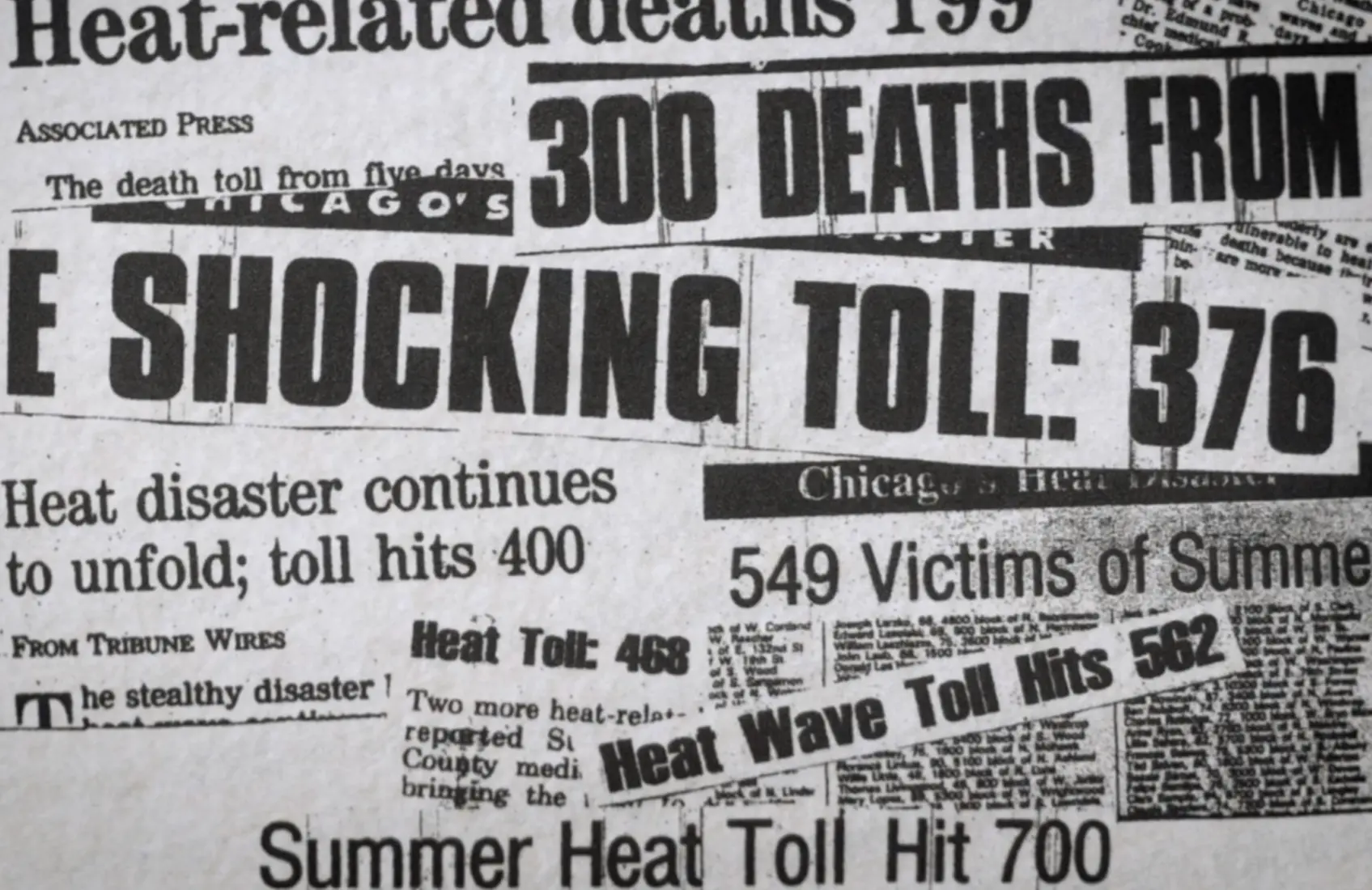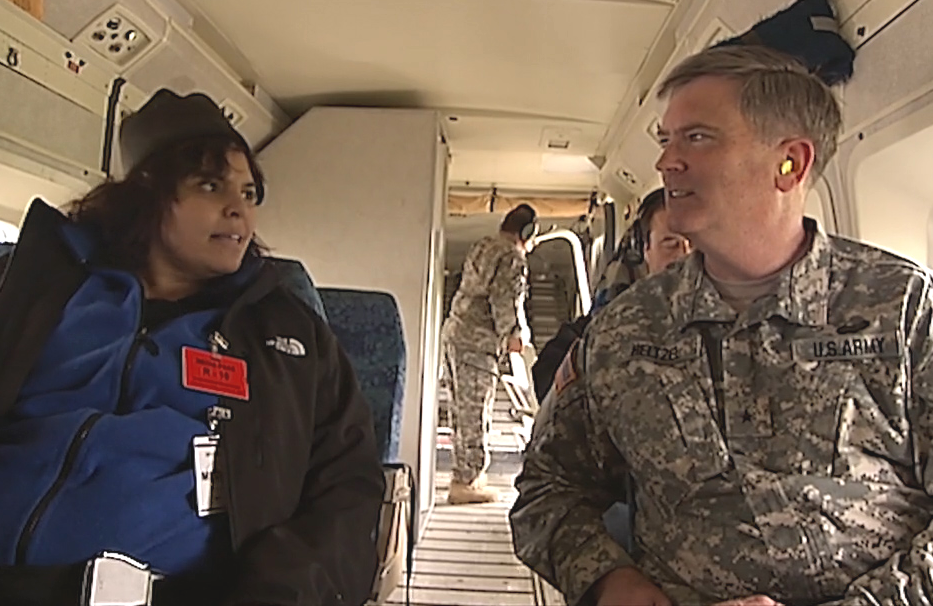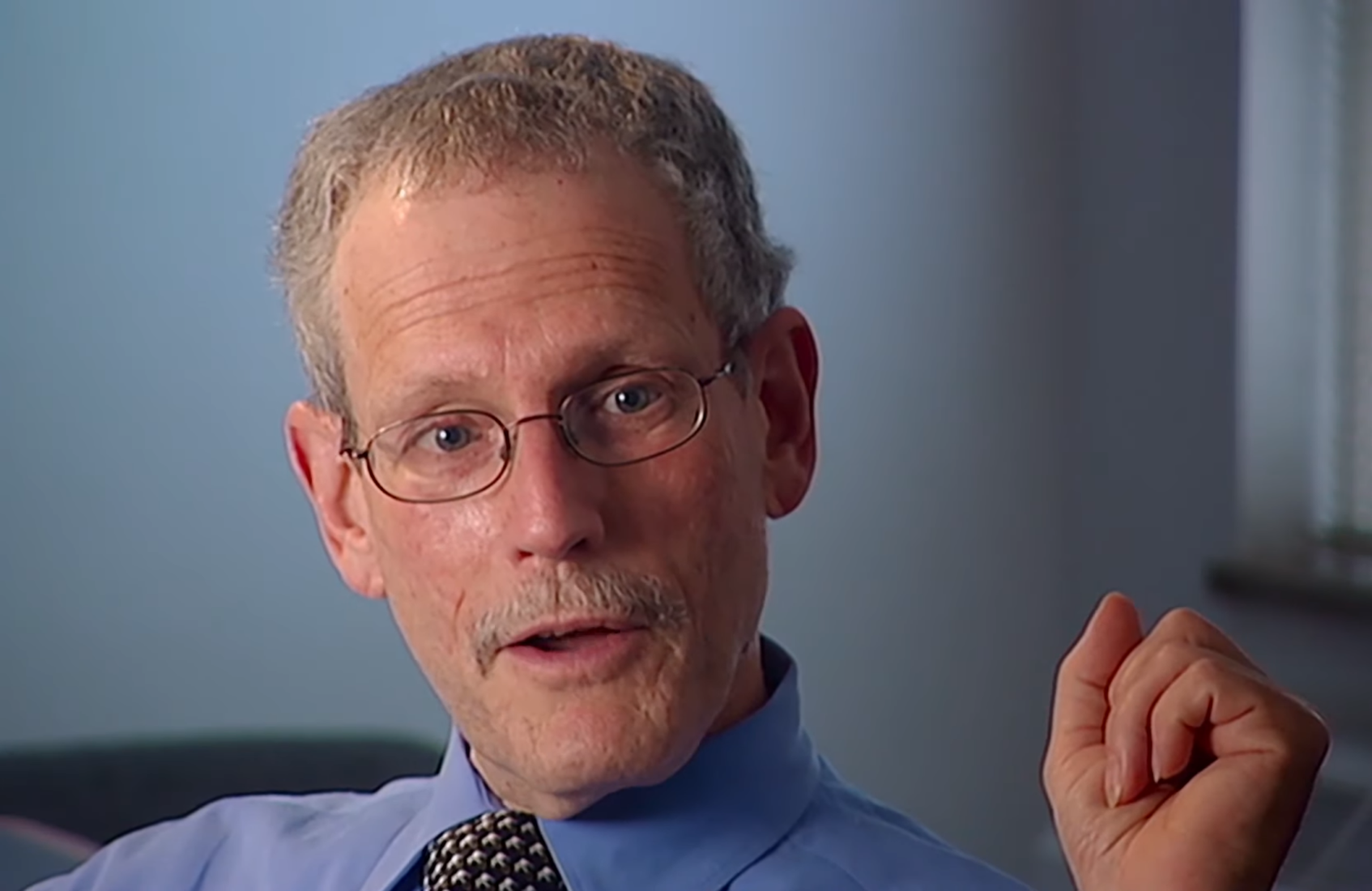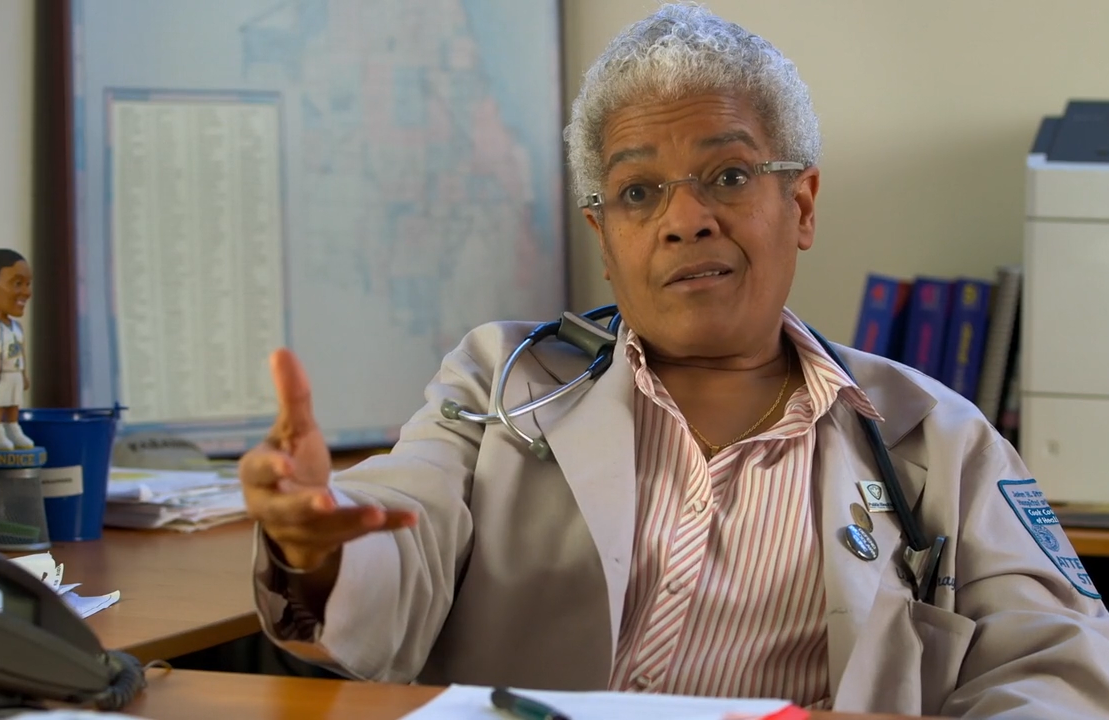Cooked: Survival By Zip Code Revisits an Epic Disaster We All Forgot About
-
 Cooked: Survival by Zipcode tells the harrowing story of the 1995 Chicago heatwave that took the lives of 739 of the city's most vulnerable residents.
Cooked: Survival by Zipcode tells the harrowing story of the 1995 Chicago heatwave that took the lives of 739 of the city's most vulnerable residents.Filmmaker Judith Helfand’s latest project for PBS, Cooked: Survival by Zip Code, starts with a piece of incredible hidden history, an American disaster that has been almost completely forgotten despite happening less than 25 years ago. And then, using her signature blend of truth-telling and quirky humor, she uses this disaster to pivot to a discussion of extreme poverty and social priorities.
Do we really need one more thing to worry about? Helfand’s makes a stimulating, 56-minute case for yes, we do need to talk about poverty — especially in an election year.
If you’ve seen Helfand’s previous works for HBO and PBS (Blue Vinyl and A Healthy Baby Girl, among others), you’re familiar with her highly personal, TV-friendly style. She appears on camera often, and narrates her own films. She describes her approach as heymish, a Yiddish word meaning, roughly, kick off your shoes, make yourself comfortable. It’s an interesting approach given the often grim subjects she tackles, but it works.

Cooked is a revisiting of the relentless heat wave that gripped Chicago for two weeks in the summer of 1995. Dozens died every day, quickly overwhelming the county morgue. Bodies were stored in refrigerated trucks, stacked one on top of each other, until they could be processed and claimed. More than 40 unclaimed bodies were buried en masse in a potter’s field.
Helfand, who admits she completely forgot about this story, leans heavily on the outstanding book Heat Wave and its author, Eric Klinenberg, in making the first part of her film. She even uses a videotape that Klinenberg loaned her of Chicago local newscasts that he taped off the TV during the heat wave. In Chicago, all politics is local, so whereas with (say) Hurricane Katrina, the nation’s eyes turned to Washington, here the buck stopped at City Hall.
And as the tape makes clear, Chicago mayor Richard M. Daley was singularly inept to respond to the disaster as it unfolded. First he made light of the extreme heat (“We go to extremes! That’s why people love Chicago!”). Then, as the death count rose, he attacked the families of the victims for not checking up on their loved ones frequently enough. Later, Daley cried that health officials had inflated the victim count. In fact, the initial death toll was found to be too low. The final count was 739 deaths — a number Helfand aptly compares to “two jumbo jets crashing in midair.”
But who flies in jumbo jets? Not the kind of people who died in the Chicago heat wave. Klinenberg overlays several maps of the city’s 50 wards, showing the ones with the highest rates of poverty, and the highest rates of crime, and the highest rates of diabetes … yep, these were the wards where the people died. “People weren’t dying on the Gold Coast,” a South Side activist tells Helfand. “They were dying on the south and west sides.”
In previous generations, poor Chicagoans might sleep on their rooftops, or seek relief by the lake. But that was before they started nailing their windows shut and avoiding the streets — decisions driven not by their moral failures but by racially-driven government policies that denied them home financing, quality schools, retail stores, and so on. The real disaster was the slow collapse of these poverty-stricken neighborhoods.
“Did they die of the heat or did they die of the social conditions? Well, both,” says Steve Whitman, a Cook County epidemiologist who documented the carnage in real time. “Even if they didn’t die that week they would have died too soon.”

All of which Helfand contrasts with images of the other Chicago — the telegenic city with its prosperous skyline, sun-kissed lakefront, and safe, population-dense neighborhoods whose residents found the excessive heat an inconvenience at worst.
Helfand is getting into dicey territory here. This is where other docmakers resort to ambush interviews and voiceover sermonettes to get your blood boiling. That’s not her goal. Cooked isn’t a call to arms, it’s a call to hearts and minds. She’s trying to get her audience to think about the things even people in the know don’t think much about.
So instead of storming into a corporate office building with a camera, Helfand hitches a ride with Orwin Williams, an easygoing activist who takes her to his old neighborhood in the South Side, now a decimated stretch of vacant lots and empty sidewalks.
“This whole block used to be full of houses,” Williams says.
“People say that it’s easier to buy a gun around here than a tomato,” Helfand says.
“I wouldn’t say that — though it’s true,” Williams wryly answers.
In fact, you can buy a tomato from Williams, because he runs a thriving organic farm on several of these vacant lots. He sells the produce for food stamps to seniors at a local public housing project, building social capital as he goes. But he’s just one guy throwing glasses of water at an inferno. Linda Rae Murray, a pillar in the public-health movement, tells Helfand that people will keep dying too soon in the heat wave zones because they lack “the structural conditions they need to stay healthy.”

Then Helfand shifts gears again. She attends an emergency-response conference and witnesses a huge disaster-simulation drill, both made possible with beaucoup bucks from Homeland Security. Her approach is not ironic or condescending. Helfand clearly admires the military efficiency and federal-sized resources being brought to bear on planning for worst-case scenarios, like the earthquake along Missouri’s New Madrid fault that we’re told is inevitable (although, as Helfand notes, the last time the fault shifted was 1812).
But when she tries to engage these emergency-response officials about thinking of poverty as a disaster in and of itself, she gets nothing but yammer about “choices” and “bootstraps.” As the director, Helfand gets the last word, but I admire her generosity with opposing points of view.
Cooked: Survival by Zip Code airs on most PBS stations this week on Independent Lens. The film is also available on PBS Passport and Amazon Prime.
Aaron Barnhart has written about television since 1994, including 15 years as TV critic for the Kansas City Star.
TOPICS: Independent Lens, PBS, Judith Helfand, Documentaries